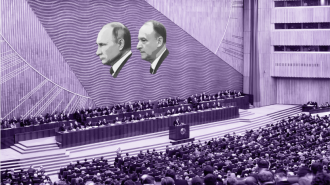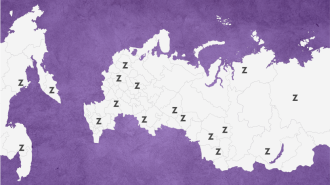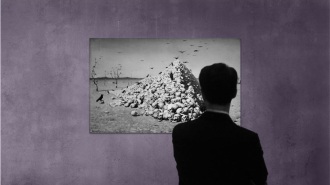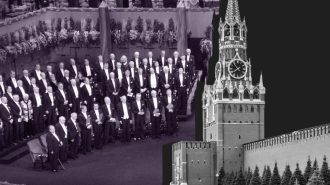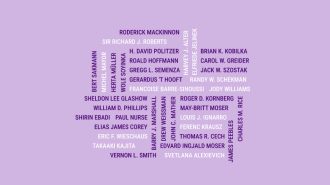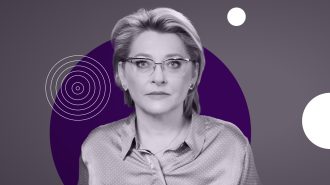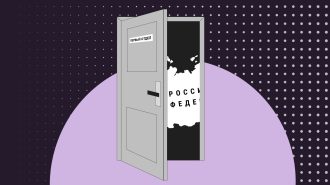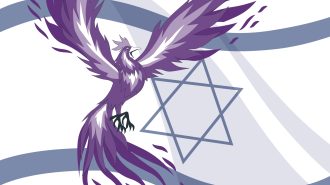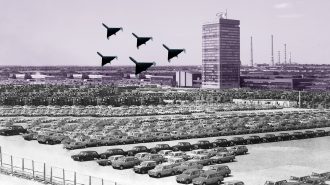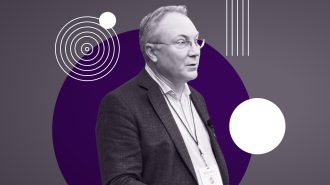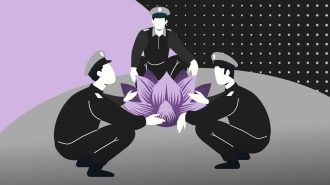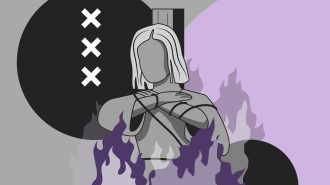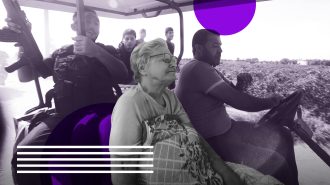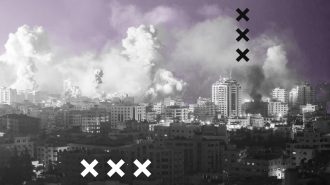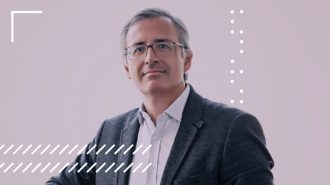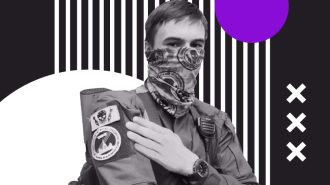Since September 1, a number of Russian universities have begun training "information warfare specialists". Such programs were "tested" even before the full-scale invasion, but this year there have been significantly more of them. T-invariant found out which universities have such programs and who will teach students propaganda.
war
The internal German resistance to the National Socialist dictatorship is a phenomenon that is not well known to anyone other than specialists. Nevertheless, there were many hotbeds of such struggle. T-invariant tells the story of a group of scientists and teachers who united around professors from the University of Freiburg. Its members worked closely with other German resistance groups and, despite the risk of exposure and threats to their lives, remained true to their professional and civic duty.
Over the two and a half years that the war in Ukraine has been going on, more than two thousand scientific articles dedicated to the "special military operation" have been published in Russia. Among them are some that have almost no relation to science, as well as quite professional studies by Russian scientists in the fields of law, psychology, sociology, and military affairs. T-invariant has read these articles and tells us what they are about.
This summer, Vladimir Zvonovsky and Alexander Khodykin published a book “Russian Public Opinion in the Conditions of Military Conflict.” T-invariant spoke with Doctor of Sociological Sciences Vladimir Zvonovsky about the results of the study.
In the spring of 2022, major publishers of scientific periodicals stopped collaborating with Russian organizations. In response, the Russian authorities initiated a “white list” of publications in which publication would be the basis for grant reporting. About 500 journals recently disappeared from the list - and returned with a recommendation to refrain from paying for open access in journals of the publishing house Elsevier, which announced that payments would be sent to support Ukraine. Scientists who do not follow this advice risk facing criminal charges article about treason.
At the beginning of March 2022, graduate students of the European University in Florence Emil Kamalov and Ivetta Sergeeva, political scientist Margarita Zavadskaya and sociologist Nika Kostenko launched a sociological project OutRush, during which they surveyed three waves of those who left. Who are these people, what do they do, what do they think about returning home, what do they hope for? Nika Kostenko, a researcher at Tel Aviv University, talks about the results of the T-invariant study.
Who are they - convinced patriots who brought the advance of the “Russian world” closer? Or banal opportunists who took advantage of the situation for mercantile purposes? T-invariant presents the results of a study of the biographies of heads of universities located in the occupied Ukrainian territories.
The Joint Institute for Nuclear Research in Dubna and the European Organization for Nuclear Research may sever official relations as early as this week.
Even before the war with Ukraine, about 150 young Russian scientists became Fulbright scholarsand got the opportunity to study at American universities. In March of this year, the IIE and Cultural Vistas organizations sponsoring the program were declared undesirable in Russia. T-invariant looked into what awaits fellows in their home countries and what alternatives young scientists see for themselves.
In the third year after the start of Russia’s full-scale invasion of Ukraine, journalism faculties and media departments at all universities in the country changed their policies. the transfer of experience to novice journalists from military officers, Z-bloggers and even former prisoners has become regular and widespread.
Vladimir Putin updated and expanded scientific council at the Security Council of the Russian Federation. T-invariant analyzed the biographies of all its 174 members. The median age of the council is pre-retirement, 63.5 years. The oldest member is 94 years old.
February 24, 2022 is a date that divided the lives of millions of people into before and after. Millions of Ukrainians became refugees, hundreds of thousands of Russians were forced to leave the country, thousands of people became political prisoners. Schools and universities have been invaded by Z-ideology. This gave rise to a new Russian reality, which more than 75 sociologists, historians, demographers and economists studying Russian society tried to comprehend.
How does war become routine, heroic and ordinary? Do you need to look at photographs of hostages every day? Where is the line between adapting to war and rejecting conflict? These questions were discussed by the participants in the discussion “Normalization of Evil” - urban geographer Aleksey Novikov, visiting researcher at Ariel University Viktor Vakhshtain and communication specialist Grigory Ogibin.
42 Nobel laureates in an open letter called on world leaders not to recognize the legitimacy of Putin as president: “The war in Ukraine and the murder of Alexei Navalny do not concern only Russia and Ukraine. The Putin regime has shown that it poses a direct and clear threat to all humanity.”
42 Nobel laureates called on world leaders to increase aid to Ukraine, protect political prisoners in Russia and not recognize Putin as the legally elected president.
The Reforum has published five tasks for the restoration of Russian science, proposed by T-invariant editor-in-chief Olga Orlova.
T-invariant opens a series of publications related to the second anniversary of the war with Ukraine. In the first investigation, we tell how the FSB of the Russian Federation launched the largest “case of scientists” in modern Russia, pursuing the signatories of an anti-war letter throughout the country.
Important Stories published a text by T-invariant editor-in-chief Olga Orlova about how the Israelis were left alone with the war. A third of students are at the front, small businesses are on the verge of collapse, volunteers are saving farmers.
In Togliatti, in the local special economic zone (SEZ), they can build another plant for the assembly of Iranian combat drones. There is no official information about this and in words the plans are purely peaceful. The EFKO group of companies, the founder of enterprises producing drones in Tolyatti, pretends that it has nothing to do with the plant. T-invariant looks at how this big business moved from projects with GM and Volkswagen to assembling deadly machines for the war in Ukraine.
T-invariant publish open letter by Alexander Kabanov, Mescal S. Ferguson Distinguished Professor, Director, Center for Nanotechnology in Drug Delivery Chapel Hill, UNC. He writes: "The terrorist attack on Israel on October 7, 2023, shocked me deeply. I was also disappointed by the statement issued by the UNC Chapel Hill Faculty, Graduate Students, and Staff Regarding Justice in Palestine, which said, among other things, “…We believe that an understanding of such loss must be situated within the historical and political context of ongoing colonial oppression.” On November 3, 2023, I sent a brief note to about 40 UNC faculty members who had signed this statement by then..."
How do Russian-speaking scientists work in America today during the war in Ukraine? Why is it important to maintain contact with colleagues from the countries of the former USSR? What awaits Russian science after Putin? We talked about these and other topics with Igor Efimov, professor of biomedical engineering and medicine at Northwestern University in Chicago, first president of RASA.
In Chicago, at the annual conference of the Russian-speaking American Scientific Association (RASA), sociologists who have recently been living in the United States chose for their presentations topics that can now hardly be discussed publicly while in Russia. Sergey Erofeev (Rutgers University)presented a brief overview of the most interesting presentations for T-invariant.
In Ivanovo, under strange circumstances, Olga Nazarenko, associate professor of the department of pharmacology of the Ivanovo State Medical Academy and political activist, died from numerous injuries. The lawyer was unable to get an investigation into the causes of her death and gain access to a medical report on the causes of death, so she is going conduct your own investigation. T-invariant spoke with the lawyer of the deceased and some other local activists who knew Olga personally and mourn her death.
The number of Israelis abducted during the terrorist attack on October 7, whose identities have been identified, has reached 210 people. However, it is not yet known how many people remain alive and how many are killed. In southern Israel, where fighting is still ongoing, small volunteer groups were searching for missing people. Zoologist Alexandra Panyutina worked in one of them. At the request of T-invariant, Alexandra tried to reconstruct the picture of the tragedy that occurred.
How do the events of October, 7 differ from the previous Israeli-Palestinian conflicts? Why was Israel unprepared for the invasion? What could happen to the hostages? A new configuration of the relations between Palestine and Israel emerges, says Dmitry Mariasis, candidate of economic sciences, specialist on the Middle East, former head of the department of the Israel study and Jewish communities at the Institute of Oriental Studies of the Russian Academy of Sciences.
What can sociology tell us about war? For residents of Eastern Europe, war has ceased to be a word from textbooks and news. It invaded their homes and their destiny, it became part of their everyday life. Ariel University researcher Victor Vakhshtain gave an open lecture at the Free University about how war mixes with everyday life.T-invariant suggests reading a short version of the speech scientist.
What is the extent of ideologization of education in Russia? Why will it be impossible to carry out lustration in the field of education? What awaits researchers in Russia and Ukraine after the war? What are the prospects for economic reforms in Ukraine? T-invariant spoke with Sergei Guriev, Provost of Sciences Po University in Paris.
At Moscow State University, a student organization of Z-activists is raising money for ammunition and equipment for ultranationalists fighting Ukraine, using the official support of the university's law faculty. T-invariant has found out that the founders of the association are the son and daughter of Yuri Trutnev, Deputy Prime Minister of the Russian Federation.












